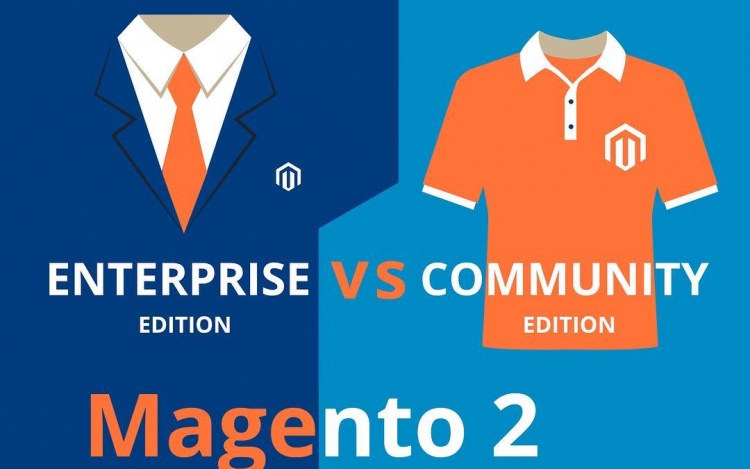The Magento merchants today are compelled to move on to Magento 2 owing to addition of new features and also the community will not support earlier versions beyond November 2018. And, the merchants seeking for Magento are indecisive in choosing between Magento 2 Community Edition (CE) and the Enterprise Edition (EE).
Some of the questions put forward by these merchants with their Magento Development Agency members are:
- Why should I move to Magento 2?
- Should I go for CE or the EE?
- What is the cost of EE?
- Is it possible to use CE, and add required functionality as extensions?
- Is self-hosted CE is better or the Cloud hosted EE?
Before concluding with answers for these questions, let us understand the basic and important features of the two versions. When we know its benefits and differences, it would be easier to make an informed choice.
Distinct features of Magento 2 Community Edition:
- Custom website design features.
- Website management features like single admin, web services API, third-party integration, and so forth.
- One-page and easy checkout.
- Payment integration supports multiple gateways like Amazon, PayPal, Authorize.net, and, etc.
- Shipping integration services with UPS, FedEx, and USPS.
- Multiple shipments on a single order
- Google Analytics and reporting
- Simple catalog and order management
- Search Engine Optimization features
Distinct Features of Magento 2 Enterprise Edition:
- High Performance and scalability
- 24*7 technical supports from the community
- Exceptionally good performance for fast growing business
- Better browser caching for the static content
- Comes with client-side performance optimization feature
- Standalone databases for product, order management, and checkout
- Merchants can opt for on premise, managed or Magento cloud hosting that complements the business.
- Advanced features like Google Tag manager Support and Solr Search
- Custom customer attribute management
- Varnish Page Caching
- Multiple Master Databases
- Usage of MySQL Cluster
- Faster JavaScript Calls
- Deferred Inventory Updates indicating a faster checkout process
Moving forward, the license cost for Magento EE works on the revenue model. One has to pay depending on the earnings of the business. When the earnings are more, then a less percentage of revenue is charged, which is indeed a competitive license cost. This model is suitable for big merchants. And, CE is suitable for medium sized businesses.
In conclusion, Magento 2 provides out of the box functionality. Most of the features are in-built in EE whereas it could be extended by integrating third party extensions in case of CE. Apart from the version features, the other aspects to be taken into account include the ability of investment cost; technical background to solve programming issues, and/or the functionality the e-commerce may need.
If the business is small-sized and requires simple features, the Community Edition meets the demand effectively. And, needless to say, if the business is big with scope for scalability, has to meet complex requirements such as different ERP, multi-webstores, and, so forth, then Magento Enterprise Edition will be the best and right choice. In addition, Magento app development is also recommended to meet the millennial generation’s demand as they are more inclined to use of smartphones.
With this information about the versions, and a complete understanding of the business, it is recommended to opt for the Magento 2 versions for the business to gain popularity and an increased ROI.




